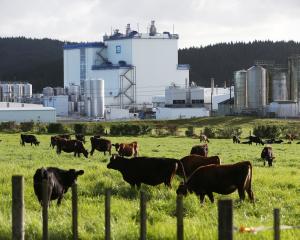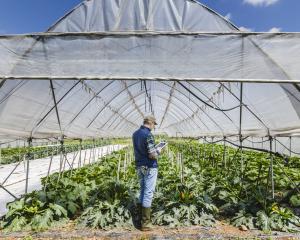

The first principle, good for people, is a commitment to a food system that supports positive health and social outcomes by ensuring everyone has access to nutritious food.
The second principle, good for the city, reflects a desire for a food-friendly economy that supports the livelihoods of people working across the food system.
The final principle, good for the planet, is a pledge to support a sustainable local food system that benefits and enhances the environment and ecosystems.
The strength of the charter is that it provides aspirational goals and commitments in support of a future food system most of us would want. It is relatively open ended, and thus is accessible for a wide range of stakeholders.
But one of the foundational, yet unstated assumptions of the charter is that the current food system is not good for people, the city or the planet. Or at least, not as good as it could be. Therefore, signatories to the charter are committing to food system change that better reflects these principles.
But how do we know if we are making progress in shifting our food system towards one that is “good”? Good for whom?
Fortunately, these questions are not unique to Dunedin. Cities, regions and countries around the world have been grappling with processes and metrics to benchmark, assess and track the shift to more sustainable food systems.
These food system assessments are the basis for food policy councils worldwide, allowing a range of stakeholders, from councils, civil society and businesses to reflect on their actions, shift priorities and develop new projects based on the evidence of their impacts.
The lessons learned from decades of experience with food system assessment have been collected and shared widely, providing a better sense of what works and what does not.
For example, the Milan Urban Food Policy Pact (MUFPP) uses six categories to understand and foster food system sustainability.
The categories are governance, sustainable diets and nutrition, social and economic equity, food production, food supply and distribution, and waste. Each of these categories are supported by 42 quantitative and qualitative indicators to measure progress.
More than 200 cities from around the world are using and refining these indicators to measure their progress in shifting their food systems.
Assessment is critical for understanding food system change and reflecting on progress. This point was emphasised to me by a colleague from outside Dunedin who was working to support community gardens, but was frustrated that community gardens were increasingly seen as the response to all food system challenges.
As they said, if community gardens are the answer, what is the question? In other words, how do we know that expanding the number or impact of community gardens leads to a shift towards food system sustainability?
A framework for gathering evidence and assessing our impacts can help to answer these type of questions. A framework for food system assessment is also useful for clarifying the role and directions of policies and interventions, identifying responsibilities and gathering the capacity and resources to initiate the change required to have “good” food.
Sean Connelly is a senior lecturer in the University of Otago School of Geography.












